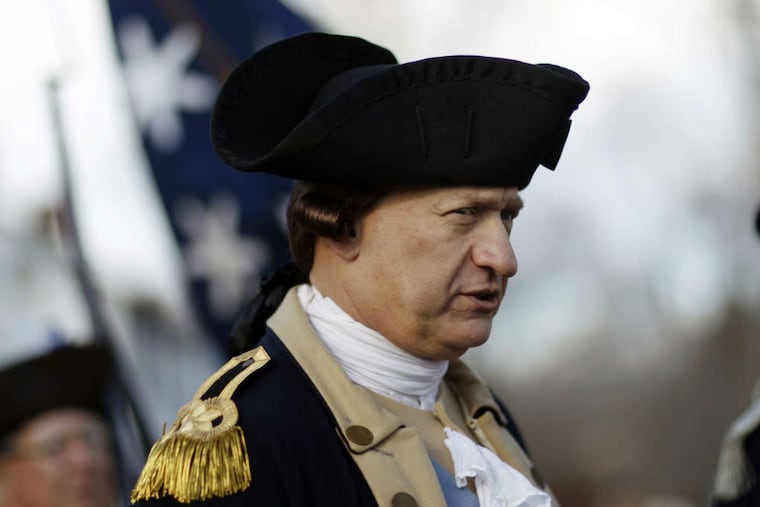Crossing the Delaware and into deeper waters
As thousands gather on the Delaware's banks to celebrate via historical reenactment George Washington's surprise Christmas Day crossing in 1776, consider how very nearly it wasn't pulled off.

As thousands gather on the Delaware's banks to celebrate via historical reenactment George Washington's surprise Christmas Day crossing in 1776, consider how very nearly it wasn't pulled off.
Walloped on the battlefield and with morale sinking in tandem with the temperature, Washington was in a bad way heading into that first Revolutionary Christmas.
Clear-sighted enough to know that defeating a garrison of Hessian mercenaries in Trenton was possible only through surprise, many would nevertheless think Washington's plan to achieve it foolhardy: transporting under cover of darkness 2,400 troops and materiel across an ice-choked Delaware River.
One could not blame Washington for lack of preparation - he had time-tabled each of the phases of the operation. Delayed arrivals, inclement weather, and poor communication, however, sundered Washington's plan as soon as it began.
(Indeed, many of the artistic depictions of the event, while inspirational, are far from accurate. For one, Washington wasn't such a landlubber to stand upright in a small boat, and the lack of moonlight meant the Virginian and his men would have been less concerned with striking heroic poses than seeing where they were going.)
The anxieties caused by these setbacks - and Washington's determination to press ahead regardless - are recorded in a letter addressed to Col. John Cadwalader, of Philadelphia. That letter is housed in the Historical Society of Pennsylvania's collections.
Writing from McKonkey's Ferry at 6 p.m., Washington begins: "Dear Sir, notwithstanding the discouraging accounts I have received from Col. Reed of what might be expected from the operations below, I am determined, as the Night is favorable, to cross the River and make the Attack upon Trenton in the Morning. If you can do nothing real, at least create as great a diversion as possible. I am Sir Yr. most obet. Servt. G: Washington."
Cadwalader himself crossed the Delaware and participated in the Battle of Trenton the following day but was unable to transport his heavy artillery across the river. Diversion or no, Washington's icy gambit worked, and delivered to the revolutionary cause its first clear victory.
Friends with Washington long before the outbreak of hostilities, Cadwalader returned to Pennsylvania and wrote the commander-in-chief recommendations for how to press their newfound advantage. This initial victory, however, was far from a turning point: It would be the better part of six more bloody years before the war would come to an end.